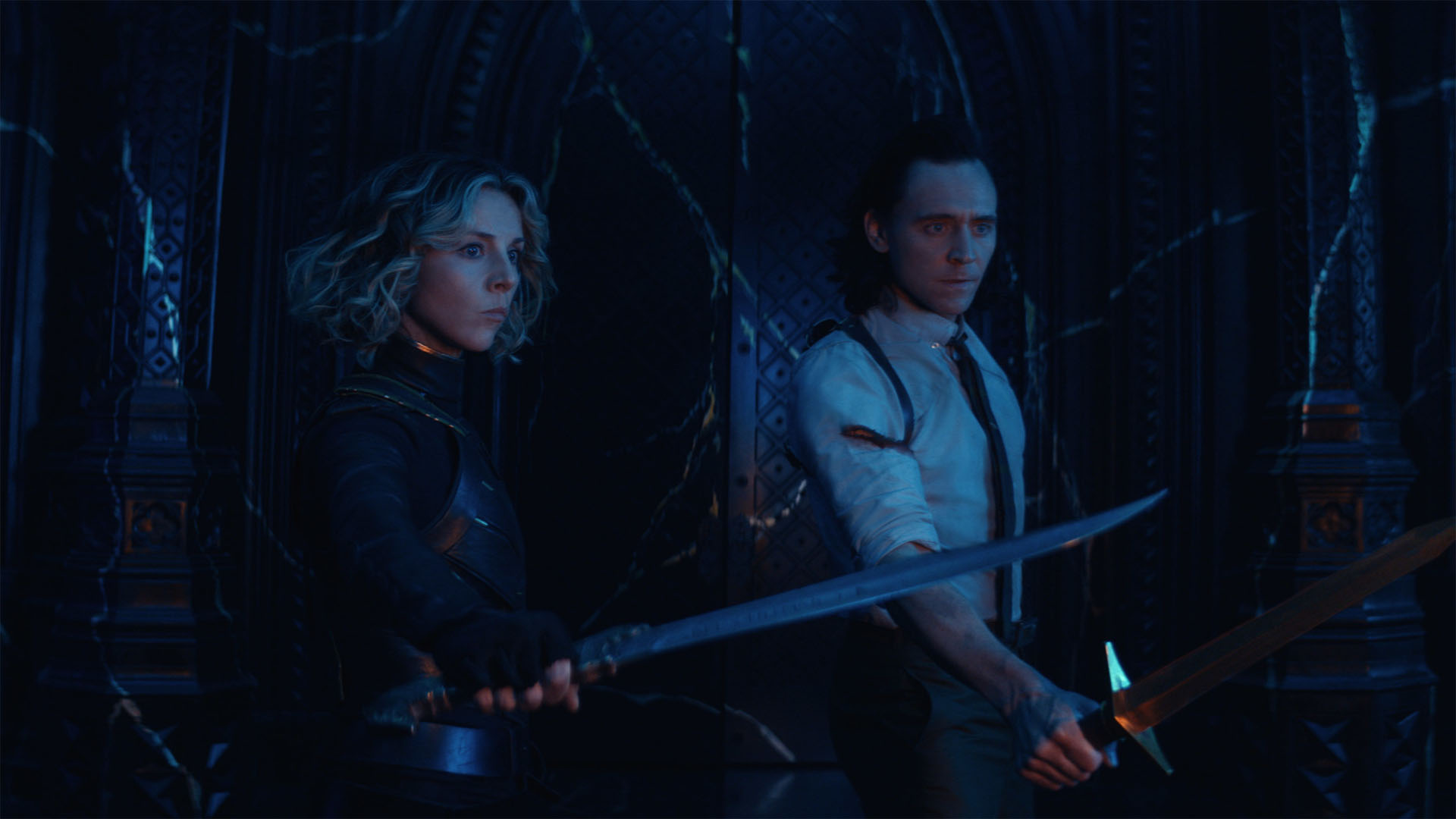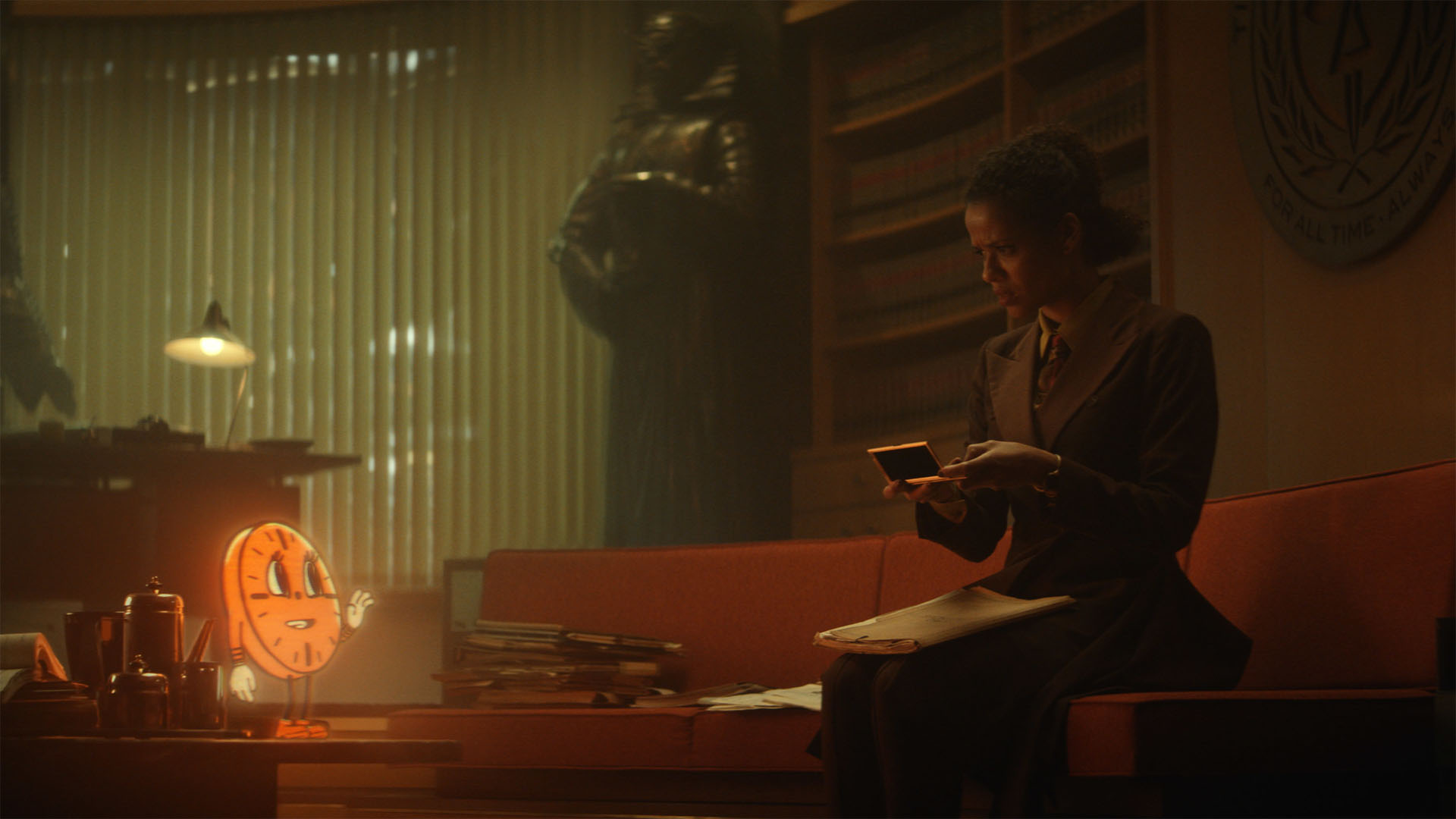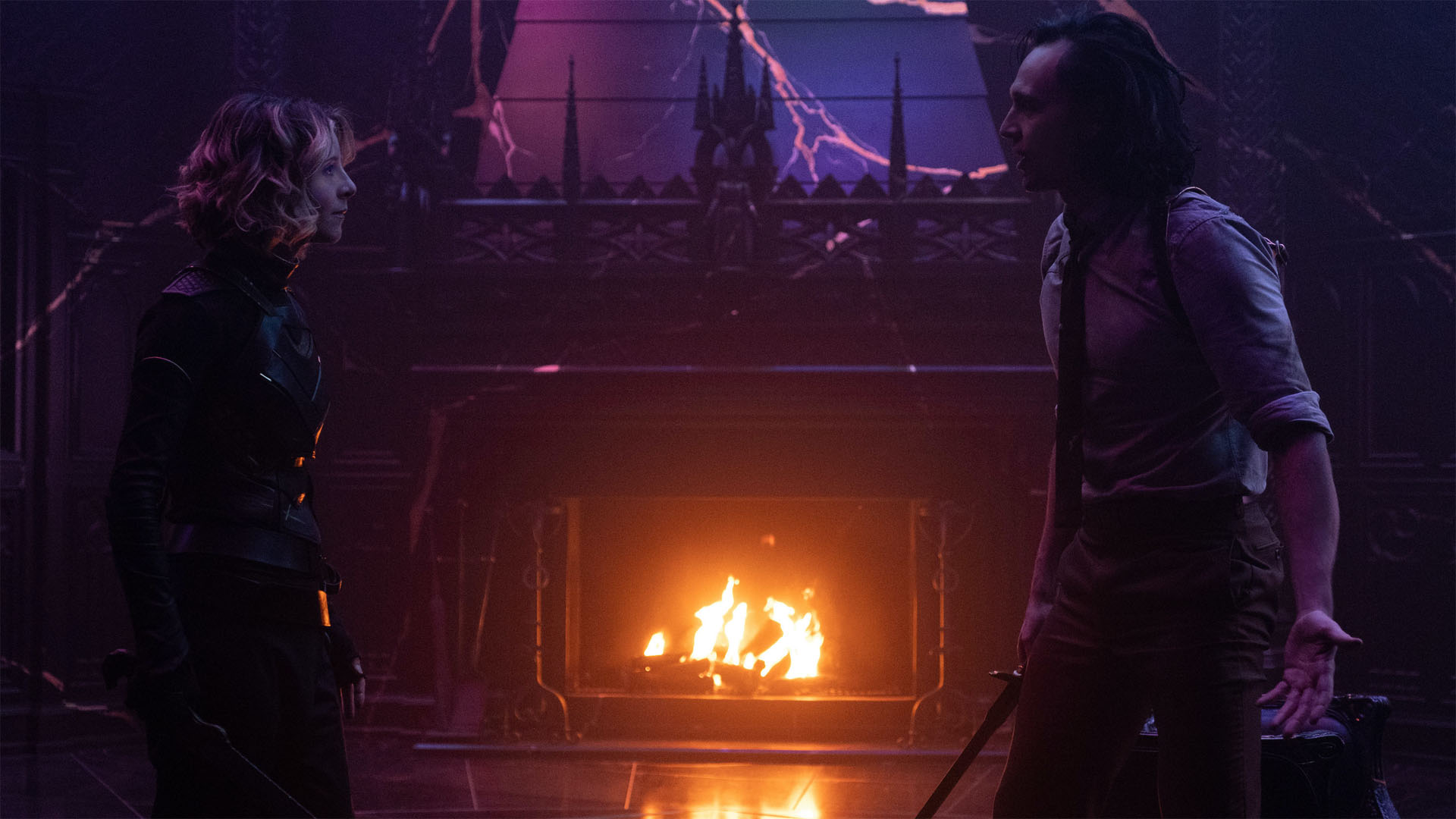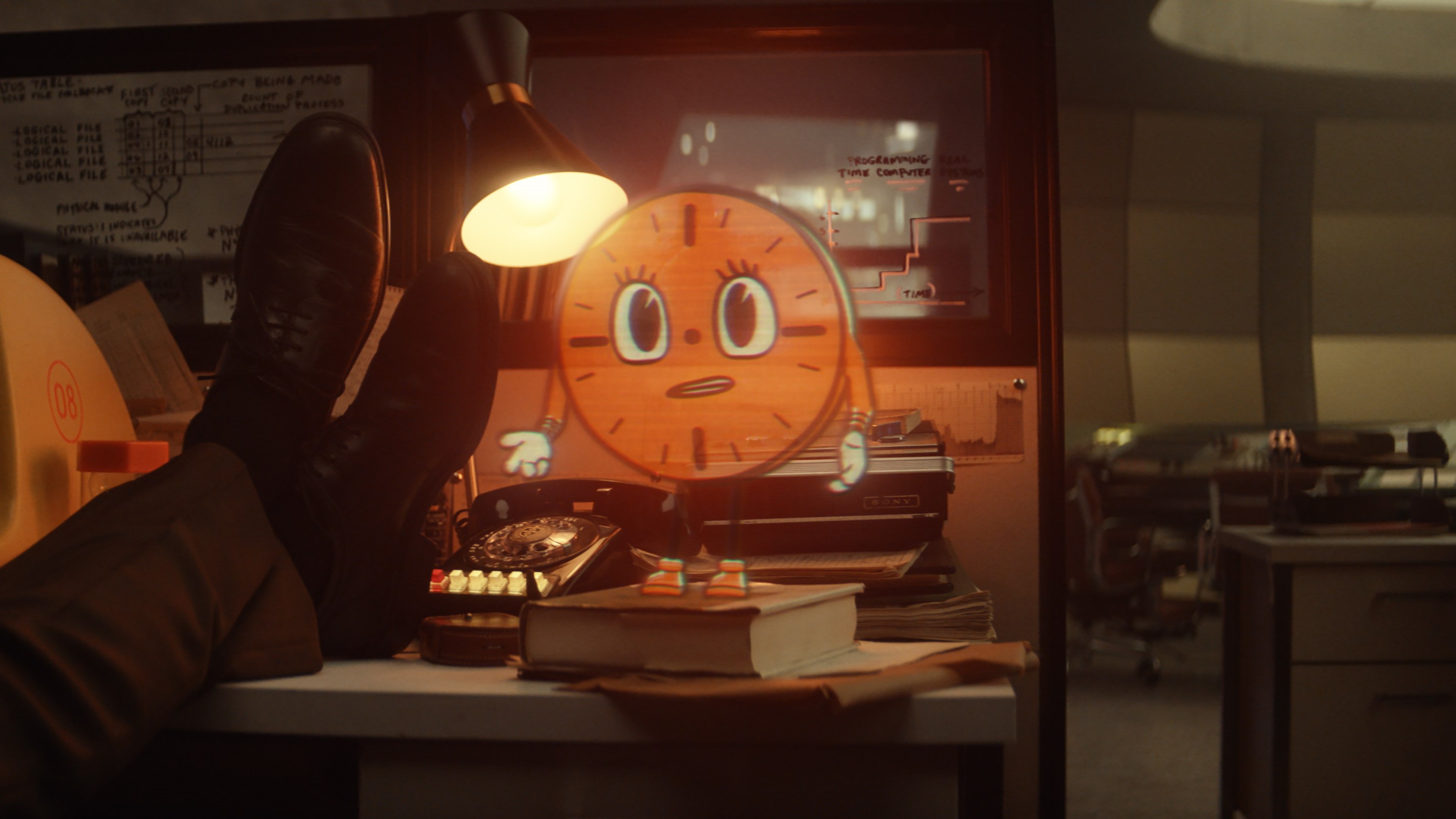Loki episode 6 recap: a disappointing season finale
Huge spoilers ahead

- Episode 6 (of 6), 'For All Time. Always'
- Written by Michael Waldron, Eric Martin
- Directed by Kate Herron
★★
Spoilers for all six episodes of Loki follow.
The Matrix Reloaded was arguably the most hotly anticipated blockbuster of 2003. As the follow-up to a genuinely game-changing movie, expectations were sky-high as the world waited to learn the mysteries of the computer simulation that was keeping humanity enslaved. Then came the final act letdown, as Keanu Reeves’ Neo bumped into an old guy who called himself the Architect and talked like he’d swallowed a thesaurus. Ergo and concordantly, the sequel ended in a colossal info-dump of exposition.
If you’re thinking that a review of the Loki season 1 finale is an odd place to revisit an 18-year-old action movie, you probably haven’t seen the latest instalment of the show. ‘For All Time. Always’ is effectively the infamous Architect scene stretched out over 40+ minutes, as Loki and Sylvie reach the Citadel at the End of Time, and run into an ancient being known simply as He Who Remains.
Like the Architect, he has a penchant for lengthy monologues, along with a deep-seated belief that removing free will is the best way to run a complex society with billions of moving parts. And despite the best efforts of Lovecraft Country’s Jonathan Majors to have some fun with the role, He Who Remains shares the Architect’s ability to suck the narrative drive out of a story.
Thanks to Loki Laufeyson’s TVA file being stamped with the important message that “Loki will return in season 2” – probably the lowest-budget mid-credits sting in the history of the Marvel Cinematic Universe – we now know that Loki was never supposed to be a one-off limited series in the vein of WandaVision. Even so, this is a disappointing season finale that seems to throw out everything that made its predecessors memorable.
- Loki on Disney Plus will tie into multiple MCU projects
- How to watch the Marvel movies in order
- Lady Loki explained
Even in a series that’s displayed a tendency to shapeshift from week-to-week, this feels like a quantum leap too far. At times, ‘For All Time. Always’ barely feels like the god of mischief’s show at all, with Loki and Sylvie effectively spending the episode as captive students in He Who Remains’ intensive class about the history of the Multiverse – we don’t even get an acerbic alligator sidekick to lighten the mood.
In an episode with less humor and fun than its predecessors, it feels like the spiky back-and-forth that’s characterized the duo’s relationship was left behind with Alioth in the Void. As they dutifully listen to He Who Remains’ 31st century origins, his recollections of a Multiversal War, and his justifications for the existence of the TVA, they’re relegated to mere bystanders. Why would an (allegedly) all-seeing cosmic being offer a pair of extremely problematic Variants the chance to run the TVA after his retirement? If he’d paid proper attention to the previous five episodes, he’d understand why it’s such a ludicrous proposition.
Get daily insight, inspiration and deals in your inbox
Sign up for breaking news, reviews, opinion, top tech deals, and more.
Though, just as time works differently in the TVA, plausibility seems to be an alien concept in He Who Remains’ spooky mansion. These scenes should be among the most pivotal in the show, but they’re let down by some extremely clunky, exposition-heavy scripting. Having spent the entire season redeeming Loki (and even turning him into a voice of reason), you never really feel that the temptation of his own throne, an Infinity Gauntlet and the chance to kill Thanos will tempt him back to the dark side – Loki’s protestations that he “can’t be trusted” feel like a desperate reminder that he used to be bad.

His fight with Sylvie over whether or not to kill He Who Remains – and potentially unleash a legion of less sympathetic Variants – also feels half-hearted, both of them seemingly pulling their punches. Their long-awaited kiss is a nice moment, but there’s an element of subterfuge to it, as Sylvie sends Loki back to the TVA, stabs He Who Remains, and confirms what we’ve suspected for a long time now: she might just be the superior Loki after all...
Where Loki and Sylvie are short-changed by the episode, however, Mobius is totally wasted. What was the point of going to all the effort of getting him back to the TVA if his efforts to reform a corrupt organization go no further than a heated argument with his former BFF, Renslayer? Renslayer’s escape hints she’ll have a role to play in Loki season 2 – the introduction of the original schoolteacher Renslayer in 2018 Ohio is likely to have its own glorious purpose – but it’s one of many loose story threads left hanging by an episode that needed at least a degree of closure.
Indeed, it looks like Marvel has fallen into a trap it’s been caught out by before – namely, prioritizing the next instalment of the franchise at the expense of what it’s working on right now. The MCU is undeniably one of the most impressive achievements in the history of blockbuster filmmaking, all those interweaving storylines across 24 movies and three TV shows requiring an impeccable grip on story arcs, the like of which Hollywood has never seen. It works best when the connecting tissue is subtle – a sly nod to a character or event, perhaps, or a mid-credits sting from leftfield. But when setting up the next stage of the saga becomes more important than the story at hand – as it did in Iron Man 2, Avengers: Age of Ultron and even WandaVision – you can start to short-change your lead characters.
The Multiverse will clearly be a big deal for Marvel, as will Majors’ new incarnation as Ant-Man and the Wasp: Quantumania Big Bad Kang the Conqueror. But Tom Hiddleston’s Loki deserved to be the star of his own story. Hopefully he’ll find his way in a timeline where nobody knows his name…


The whole of space and time is at your fingertips with our recaps of Loki: episode 1, Loki episode 2, Loki episode 3, Loki episode 4 and Loki episode 5.
Verdict:
In terms of setting up Phase 4 of the Marvel Cinematic Universe, Loki episode 6 is a triumph, opening up the fractured timelines of the Multiverse in spectacular fashion, and answering a lot of big questions about the inner workings of the MCU along the way. Jonathan Majors’ fun performance does enough to suggest he’ll make a memorable villain when he rematerializes as Kang the Conqueror, while Loki finding himself in an alternative TVA is enough to hint that the MCU is about to head off in some exciting new directions.
Taken on its own merits, however, the episode is a big letdown. When Loki feels like a bystander in the season finale of a show that bears his name, something’s clearly gone a bit wrong. As one of Marvel’s MVPs, he deserved better than seeing his own story sacrificed in the name of the all-encompassing Marvel story arc.
Marvel-ous facts
- The episode takes its title from the Time Variance Authority motto.
- Instead of the usual theme music, the Marvel Studios logo is accompanied by ‘It’s Been A Long, Long’ time performed by Harry James & His Orchestra. It’s also the music that plays over Steve Rogers and Peggy Carter’s dance at the end of Avengers: Endgame.
- There are also snippets of dialogue from MCU movies, with contributions from Sam Wilson (Falcon), Hope Van Dyne (The Wasp), King T’Challa (Black Panther), Scott Lang (Ant-Man), Thor, Steve Rogers (Captain America), Hank Pym (the original Ant-Man), Carol Danvers (Captain Marvel), Loki and Korg.
- As the camera zooms into the timeline orbiting He Who Remains’ mansion, we hear snippets of dialogue from Nelson Mandela, Neil Armstrong, Greta Thunberg, Malala Yousafzai and Maya Angelou – as well as Vision’s now-iconic speech about grief from WandaVision.
- The music mix in the sequence includes snippets from Tchaikovsky’s ‘Swan Lake’, Beethoven’s ‘Für Elise’, Nina Simone’s ‘I Put A Spell on You’ and Kylie Minogue’s ‘I Should Be So Lucky’.
- Created by Len Wein and John Buscema for Thor #245 in 1976, the comic-book version of He Who Remains is also the director of the Time Variance Authority and creator of the Time-Keepers. Like his TV counterpart, he resided at the Citadel at the End of Time.
- It’s no secret that Jonathan Majors (He Who Remains) will be playing Kang the Conqueror in Ant-Man and the Wasp: Quantumania. Presumably at least one of the new Variants created when Sylvie kills He Who Remains will become Kang.
- He Who Remains reference to being born in the 31st century echoes the origins of the comic-book Kang. This Kang had a relationship with Ravonna Renslayer, so it wouldn’t be a surprise if the pair join forces in Loki season 2.
- There’s a minor Lovecraft Country reunion in the episode, with Majors joining Wunmi Mosaku, who plays Hunter B-15 in Loki.
- A statue of He Who Remains/Kang appears in place of the Timekeepers in the alternative Time Variance Authority at the end of the episode.
- Having played analyst Casey in earlier episodes of the season (the guy who didn’t know what a fish is), Eugene Cordero has a new role as Hunter K-5E in the new-look TVA.
- The presence of an alternative TVA opens up all sorts of questions about the nature of the Multiverse – is each one managing a different ‘Sacred Timeline’?
- Loki finding himself in a new version of his own reality where nobody recognizes him is a classic sci-fi trope – other instances include Primeval, Tim Burton’s Planet of the Apes and The Flash.
The whole of Loki season 1 is now available on Disney Plus.
Richard is a freelance journalist specialising in movies and TV, primarily of the sci-fi and fantasy variety. An early encounter with a certain galaxy far, far away started a lifelong love affair with outer space, and these days Richard's happiest geeking out about Star Wars, Star Trek, Marvel and other long-running pop culture franchises. In a previous life he was editor of legendary sci-fi and fantasy magazine SFX, where he got to interview many of the biggest names in the business – though he'll always have a soft spot for Jeff Goldblum who (somewhat bizarrely) thought Richard's name was Winter.
